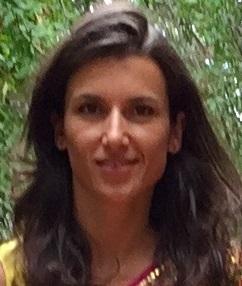"If we don't succeed with affordable housing, we won't get people to move here"

In the late spring of 2023, Olga Patrashku was strolling through Skellefteå’s city centre, when she received a life-changing call. "I was so thrilled that I just screamed out loud and started jumping in the street," says Patrashku.
Patrashku had just learnt that her application for affordable housing had been successful. Two months later, at just 20, the Ukrainian woman who had fled Russia’s invasion moved into a bright and spacious two-bedroom flat on the second floor of a newly built residential building in the Swedish city, complete with brand-new kitchen, washing machine, and a stunning view of the peaceful Sjungande Dalen, or Singing Valley.
Skellefteå’s municipality wants to build housing for people who might be priced out of the private property market and in places where private investors might rate the chance of a good return as too low.
"If we don't succeed with affordable housing, we won't get people to move here," says Gustaf Ulander, sustainability and mobility official at Skellefteå’s municipality. So Skellefteå's public housing company, Skelleftebostäder (Skebo), is building 743 energy-efficient homes, including the one for the young Ukrainian woman. With a SEK 800 million loan (around €70 million), the European Investment Bank is financing the city’s ambitious housing plan.
Focus on students

More than half of the 743 homes will be for university students.
“Student housing is essential for our university campus to grow,” says Ulander. “And the campus itself is a key resource for the city.” Ulander’s 20-year-old daughter may consider applying for one of the new homes. She and her boyfriend are thinking about finding a place where they can settle down and plan a family.
The Skebo homes are being built according to Boverket’s regulations, the Swedish standards for construction, ensuring high quality, sustainability and safety. These homes feature rooftop solar panels, a ventilation system that recovers heat, and a wastewater recycling system that reuses energy for heating.
However, Skellefteå’s plan goes beyond just building energy-efficient homes. It provides safe and stable homes and creates communities where everyone has the chance to thrive.
That’s certainly how Olga Patrashku sees it.
In her apartment, friends are coming over for dinner. Patrashku is decorating her homemade dessert with blueberries she picked in the nearby Singing Valley woods. “I feel happy here,” she says. “It has worked out with both job and apartment, which feels incredible.”
SKELLETEAE AFFORDABLE HOUSING
This project concerns an investment loan to support investments in social and affordable housing for rent in the Municipality of Skelleftea, which is situated in the Västerbotten County of northern Sweden. The housing programme includes 743 affordable housing units, including a specific housing programme for students.


